Discover financial empowerment resources
Discover financial empowerment resources
The findings in this report highlight the important role of Old Age Security in reducing poverty, with payments under this program making up a large share of annual income for older adults in Toronto’s lowest income deciles. However, too many eligible older adults in Toronto are not receiving OAS...
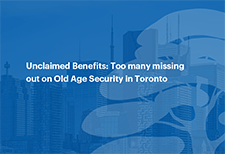
The executive summary on the progress of Opportunity for All- Canada's First Poverty Reduction Strategy identifies the availability and affordability of safe and suitable housing, the ever-increasing cost of feeding one's family, the long hours and low wages of work to barely keep your head above...

Filing a tax return is one of the most important ways for Canadians to access income benefits. However, numerous barriers can make tax filing challenging, particularly for people living on low incomes. After engaging with 31 individuals, we discovered that there are disruptors and compounders that...
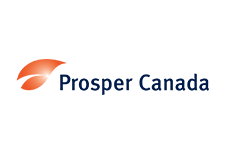
Internet use in Canada is prolific, with 94% of Canadians going online for personal use in 2022, up from 91% in 2018. Not only are more Canadians using the Internet since the COVID-19 pandemic, but more are managing their personal and household finances online. Based on data from the Canadian...

Momentum is a Calgary-based community organization that works with people living on low incomes and partners in the community to create a thriving local economy for all. For over 20 years, Momentum has offered matched savings programs that build financial stability by working with participants to...

The Reducing the Impact of Financial Strain (RIFS) project is a ground-breaking collaboration between communities and their Primary Care Networks that aims to reduce financial strain as a barrier to health, particularly in areas of cancer, chronic-disease-management, and prevention. Did you know...
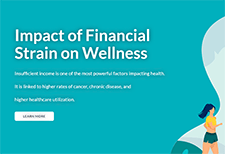
Gig workers account for approximately 25 to 35% of the national workforce. When considering workers earning low to moderate incomes (LMI), these percentages are likely higher. Gig work provides reported advantages including flexibility, supplemental income, and independence. However, it also brings...
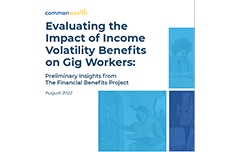
Financial empowerment consists of five complementary strategies including financial literacy and coaching; taxes and access to benefits; safe financial products; savings and asset building; and consumer protection. Empower U serves primarily as a financial literacy and coaching and savings and...
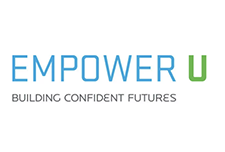
In 2016, Prosper Canada partnered with the Ontario government and nine non-profit organizations through the Ontario Financial Empowerment Champions and Financial Empowerment and Problem Solving projects, to pilot delivery of community financial help services for low-income Ontarians. Third-party...
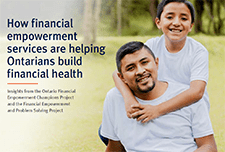
The financial hardships households faced in the midst of the pandemic reveals the scale of the precarity that millions of households were experiencing well before the crisis began. This highlights the urgency of the need to reimagine our system of benefits—both public and private—to effectively...

Momentum is a changing-making organization located in Calgary, Alberta that works with people living on low incomes and partners in the community to create a thriving local economy for all. In 2008, Momentum launched the StartSmart program to support families living on low incomes to open...

The Province of Ontario, through the former Ministry of Community and Social Services (now known as the Ministry of Children, Community and Social Services (MCCSS)) entered into a contract with Prosper Canada (PC) in 2015 to fund the Financial Empowerment and Problem Solving (FEPS) pilot project....

The Ministry of Children, Community and Social Services (MCCSS) with funding from Ontario Works (OW) contracted with Prosper Canada (PC) in 2016 to launch the Financial Empowerment Champions (FECs) project. The project intends to build capacity (e.g., embed financial empowerment (FE) interventions)...

The position of Taxpayers’ Ombudsman (the Ombudsman) was created to support the government priorities of stronger democratic institutions, increased transparency within institutions, and fair treatment. As an independent and impartial officer, the Ombudsman handles complaints about the service of...
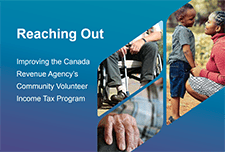
Financial education plays an important role in guiding individuals to achieve their financial goals and contribute to the economic well-being of society as a whole. While the examination on the effectiveness of financial education has many factors to consider, the National Endowment for Financial...
This report provides information on the Financial Empowerment Center model, the people it served, the outcomes they achieved, the impact services had on nonprofit and city partners, and lessons learned for others looking to replicate or support this model. The evaluation was designed as a...
In 2008, research conducted by Omega revealed that high-income families took advantage of Canada’s programs to encourage education savings at four times the rate of lower-income families. The findings also showed that only 16% of eligible Canadian children had received their CLB. In response to...
Individual development accounts (IDAs) help low-income families save by matching their personal savings for specific investments, such as a first home, business capitalization, or higher education and training. The Assets for Independence (AFI) program is a federally supported IDA grant program...
From October 1, 2009 through the end of June 2012, over 4,500 San Francisco residents received homelessness prevention or rapid re-housing services from the federally funded Homelessness Prevention and Rapid Re-Housing Program (HPRP). Administered by SF-HSA, the program provided case management,...
To date no meta-analysis specific to Canada has been done to consider effectiveness in financial literacy programming and evaluation among existing financial literacy resources. This research project, therefore, seeks to explore the following: Issues in effective delivery of financial literacy...
This summative evaluation of the Canada Education Savings Program (CESP) examines the performance of the CESP. The CESP, which includes the Basic Canada Education Savings Grant (CESG), the Additional-CESG (A-CESG) and the Canada Learning Bond (CLB), provides incentives to save for post-secondary...
